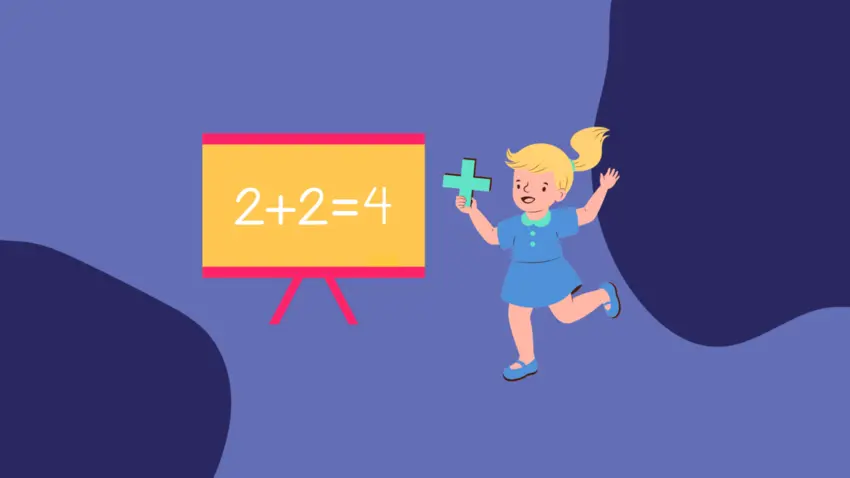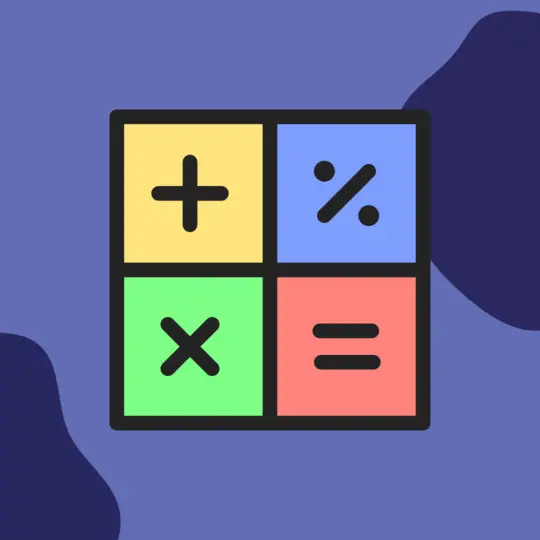Embarking on a captivating journey through the realm of numbers and patterns, mathematics in kindergarten serves as a magical exploration. It unveils the secrets of logical thinking, marking not only the initial strides in learning, but also a thrilling expedition that readies young minds for subsequent educational phases. Mathematics transcends mere memorization of intricate formulas and equations; rather, it becomes the crucible for the development of children's cognitive abilities. You will find a math tutor on the TeMa platform.
The significance of mathematics lies in various aspects:
- Beyond number recognition, mathematics fosters the cultivation of logical thinking in young minds.
- It acts as a crucial preparatory phase for the academic journey our children are about to undertake.
- Mathematical tasks often necessitate collaboration and communication among children, instilling the ability to work in groups and collectively tackle challenges.
- The realm of math unveils its creativity through preschool games, sparking imagination and encouraging children to perceive relationships between numbers, fostering innovative problem-solving skills.
- Counting, measuring, and comparing become integral components of everyday situations, where mathematics assumes a pivotal role.
The Significance of Incorporating Mathematics into Kindergarten Education
The incorporation of mathematics into the educational curriculum for kindergarten is a crucial factor in unlocking the complete potential of our young learners. These sessions extend beyond mere counting exercises, serving as enchanting experiences that contribute to the development of perceptiveness, concentration, and a grasp of abstract mathematical concepts.
Let's delve into the reasons behind the importance of integrating mathematics:
- playful integration proves to be an effective method for honing perceptive skills;
- while mathematics might seem abstract to many, its comprehension is facilitated through integration with diverse educational modalities such as movement and art. This synergistic approach transforms learning into an enjoyable and magical experience.
Advantages of Early Mathematics Education
Engaging in playful activities during the formative years serves as a cornerstone for nurturing young minds. In the kindergarten setting, incorporating playful methodologies seamlessly integrates with effective mathematics instruction. It resembles an enchanting expedition where children not only grasp the fundamentals of counting, comparison, and mathematical concepts but also derive immense enjoyment from the process.
Introducing mathematical concepts through storytelling proves to be a captivating approach to pique the curiosity of young learners. Crafting narratives where numbers take on the role of protagonists transforms mathematics from a mere task into an exhilarating adventure. It's akin to infusing a magical element into the concoction of mathematical learning.
Utilizing Playful Approaches in Kindergarten Mathematics Instruction
Introducing children to the world of learning from their earliest years is akin to unlocking a door to boundless developmental opportunities. When youngsters engage in mathematical games, they not only revel in the delight of counting, but also cultivate essential skills that will accompany them throughout their lives.
Mathematical games serve as a training ground for developing problem-solving abilities in young minds. Those who embark on unraveling mathematical secrets at an early age emerge as adept thinkers, well-prepared for any challenges that come their way. The acts of counting, comparing, and measuring function as a magical enchantment, fortifying children's self-assurance. Gaining proficiency in mathematics from a young age instills a sense of readiness in children, empowering them to navigate a myriad of situations beyond the confines of traditional worksheets.
Integrating Math into Daily Life: Practical Suggestions
Rather than the conventional counting to 10, let's explore quantifying the vibrant vegetables on the plate. It's more than just counting — it's a wonderful opportunity to discuss shapes, colors, and tastes, blending mathematics with the enjoyment of a meal. As part of the evening routine, counting sheep becomes a dual activity of relaxation and a bit of mathematical training. Children can enhance their counting skills while incorporating mathematical elements into their nightly bedtime rituals.
The Parental Role in Nurturing Mathematical Skills at Home
Infusing enjoyment into mathematical activities is pivotal for the development of young minds, and the contribution of parents in this expedition is truly priceless. Supporting the learning of mathematics at home transcends being a mere duty; it evolves into an exhilarating journey where numbers align with children's daily interests.
Commencing the day with mathematical puzzles or games not only captivates children but also demonstrates that mathematics is something to be cherished and comprehended at any hour. Whether it's creating a space for counting toys, establishing a vibrant math corner, or even mapping out mathematical adventures on the floor, mathematics seamlessly integrates into their everyday surroundings.
Through collaborative games, a nurturing atmosphere, and the practical application of mathematics in daily scenarios, parents not only reinforce their children's mathematical proficiency but also transform mathematics into a magical escapade every single day!




-preview.png)